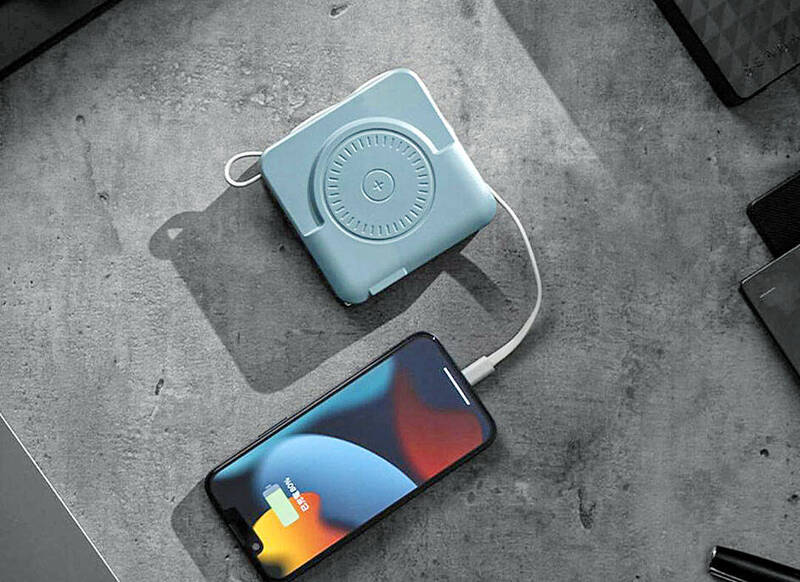Business
Five Power Bank Brands Initiate Voluntary Recalls in Taiwan

The Bureau of Standards, Metrology and Inspection in Taiwan has announced a voluntary recall of five power bank models from various brands. This action stems from safety concerns and aims to enhance consumer awareness regarding potential risks associated with these products.
Details of the Recalled Models
The five models involved in this recall are the A1247 from Anker, Gravity CS5/CS10 from Adam Elements, PBLG2W from Lenovo, UE10013CQ from Energizer, and MP-10050 from Mypower. These recalls were initiated by the manufacturers in compliance with Article 10 of the Consumer Protection Act. The Bureau has made the details of these recalls available on its product safety information website.
In addition to these five, two other brands, Xiaomi Corp and Moztech, have also taken precautionary measures by recalling specific models. It is important to note that the recalls pertain only to certain models and manufacturing years, rather than entire product lines.
Safety Concerns and Testing Procedures
The precautionary action by Moztech follows a previous incident involving one of its power bank models that exploded two years ago. Reports indicated multiple fire incidents after the recall, including a case where a power bank with an acceptable serial number reportedly exploded. In light of renewed safety concerns, Moztech stated that its power banks have undergone retesting and are compliant with the Bureau’s safety regulations.
According to a Bureau official, power banks in Taiwan are classified as products that require mandatory inspection before they can be marketed or sold. While most newer models adhere to these regulations, the Bureau is increasing random inspections due to heightened safety concerns. Discussions are ongoing regarding potential updates to existing regulations to enhance consumer safety.
The Bureau emphasized that personal usage habits and the age of the products could influence safety. For instance, physical damage to a power bank may lead to internal short circuits, posing a fire risk. Consequently, consumers are advised to carefully review product labeling and adhere to safe usage instructions, beyond just considering price and capacity.
Consumers should ensure that the manufacturer’s name, address, and model number are clearly marked on the packaging. Additionally, products manufactured or imported after May 1, 2014, should display a product safety mark, which signifies compliance with safety standards.
The Bureau also cautioned against self-repair of power banks in the event of malfunction and recommended that these devices be returned to the manufacturer’s repair center. As battery capacity diminishes over time, consumers are encouraged to consider purchasing new power banks rather than attempting to extend the life of older models.
To further minimize risks, power banks should be stored in dry areas away from direct sunlight, and consumers are advised not to place them near flammable materials or metal objects.
The recall initiative reflects a proactive approach to consumer safety in Taiwan’s electronics market, aligning with ongoing efforts to ensure that power bank products meet rigorous safety standards.
-

 Lifestyle4 months ago
Lifestyle4 months agoHumanism Camp Engages 250 Youths in Summer Fest 2025
-

 Business5 months ago
Business5 months agoKenvue Dismisses CEO Thibaut Mongon as Strategic Review Advances
-

 Sports4 months ago
Sports4 months agoDe Minaur Triumphs at Washington Open After Thrilling Comeback
-

 Sports5 months ago
Sports5 months agoTupou and Daugunu Join First Nations Squad for Lions Clash
-

 Top Stories5 months ago
Top Stories5 months agoColombian Senator Miguel Uribe Shows Signs of Recovery After Attack
-

 World5 months ago
World5 months agoASEAN Gears Up for Historic Joint Meeting of Foreign and Economic Ministers
-

 Health4 months ago
Health4 months agoNew Study Challenges Assumptions About Aging and Inflammation
-

 Business5 months ago
Business5 months agoOil Prices Surge Following New EU Sanctions on Russia
-

 Entertainment4 months ago
Entertainment4 months agoDetaşe-Sabah Violin Ensemble Captivates at Gabala Music Festival
-

 Entertainment4 months ago
Entertainment4 months agoBaku Metro Extends Hours for Justin Timberlake Concert
-

 Top Stories5 months ago
Top Stories5 months agoRethinking Singapore’s F&B Regulations Amid Business Closures
-

 Business5 months ago
Business5 months agoU.S. House Approves Stablecoin Bill, Sends to Trump for Signature









